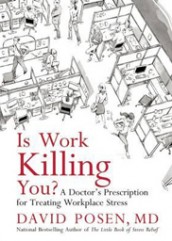 MICHAEL KERR
MICHAEL KERR
10 Reasons Why Humour Is A Key To Success At Work
Forbes.com cites the reasons “Workplace Energizer†Michael Kerr believes humour is a fundamental element for achieving success in the workplace:
Tasteful humor is a key to success at work, but there’s a good chance your co-workers aren’t cracking jokes or packaging information with wit on a regular basis–and your office could probably stand to have a little more fun.
“Humor, by its nature, tends to have an edge to it, so people typically tone it down at work,†says Laura Vanderkam, author of What the Most Successful People Do at Work (Portfolio, 2013), and What the Most Successful People Do Before Breakfast (Portfolio, 2012). “It’s hard to do well and easy to do badly. Plus, we all have a tendency to take ourselves way too seriously.â€
Michael Kerr, an international business speaker, president of Humor at Work, and author of the upcoming book, The Humor Advantage: Why Some Businesses are Laughing all the Way to the Bank (Dec. 2013), says the amount or type of humor you’ll find in any given workplace depends almost entirely on the culture. “In workplaces that encourage people to be themselves–that are less hierarchical and more innovative–people tend to be more open with their humor,†he says. “Even people who aren’t always comfortable sharing their humor tend to do so in more relaxed environments where the use of humor becomes second nature with everyone’s style.â€






